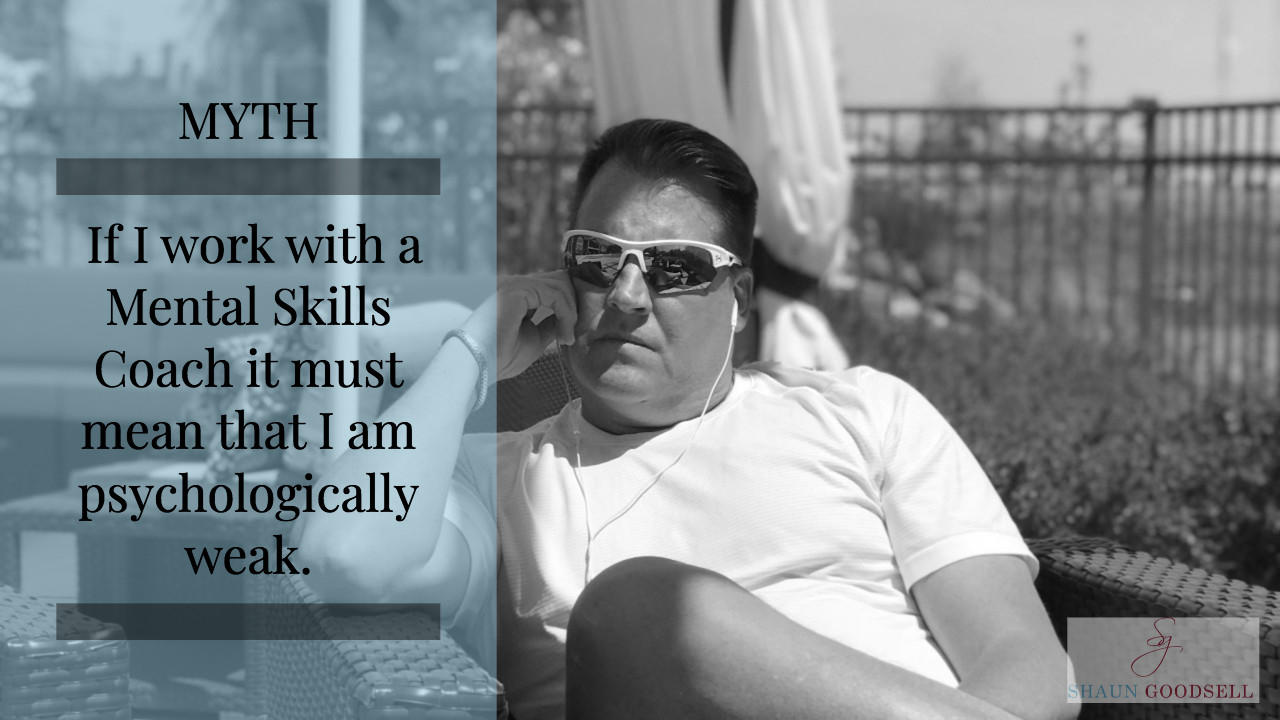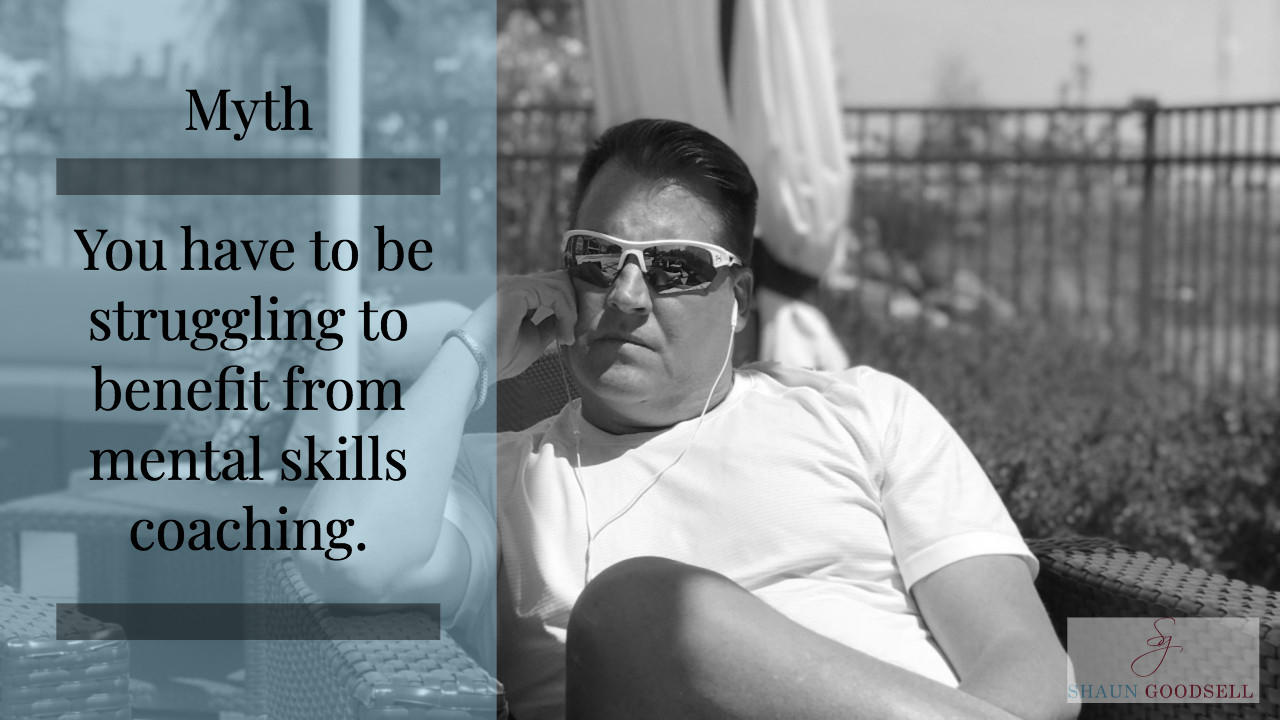The Mental Edge Blog
Mental Skills: Unlocking Peak Performance through Shaun Goodsell’s Approach
In the world of competitive sports, athletes constantly search for ways to improve their physical skills, push their limits...
There are many questions athletes ask when they ponder the possibility of working with a Mental Skills Coach. Sometimes, many questions can be answered by simply unpacking some of the most common myth...
Myths are beliefs that guide our thinking and behavior that may contain partial truth while also containing misguided information.
When I was growing up my mom would tell me I could not go swimming af...
Some months ago I was talking with a young athlete, and I asked him how things were going for him. His response was, “I DONT KNOW.” To most people this response would be a dead end and the conversatio...
I first thought of this concept when I was on the pool deck of a club swimming team working with individuals as they, one by one, jumped out of the pool for a short mental-skills coaching session. (fo...
“The trauma that results when coaches over step the boundaries of human decency and respect.”
We have become INCREASINGLY aware and sensitive to the dangers of concussions over the last couple of yea...
I think most of us would agree that increasing strength is a good thing. Athletes invest countless hours training for the purpose of increasing their strength. They do this because the rigors and chal...
I attended my first teen support group about 30 years ago. I remember that night like it was yesterday. My first encounter was with a 15 year old that asked, “What the ******** are you doing here?” To...
Have you ever given thought to the connection between ATTENTIVE CONSISTENCY and SUCCESS?
What I mean by ATTENTIVE CONSISTENCY is the continual capacity to give quality focus and concentration to a pr...
DO YOU FIND YOURSELF CONSTANTLY WAITING FOR SOMETHING BETTER TO COME UP?
DO YOU SEEM TO KEEP REPEATING THE SAME CHALLENGES IN YOUR LIFE?
DO YOU FIND IT DIFFICULT TO GIVE OF YOURSELF COMPLETELY TO A PURS...
We would all like to believe that we are in CHARGE of or CONTROL our lives. Fundamentally we do make choices with our behaviors and thoughts day to day. However, the shocking truth is that we are all ...
Discovering purpose can be very challenging. This might be because we have a pre-determined idea of what it means to have a purpose by generating an image of a hero like Martin Luther King, Gandhi or ...



